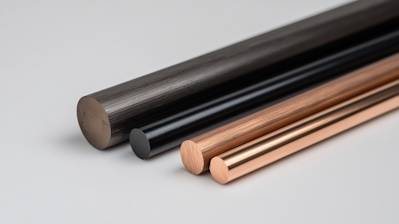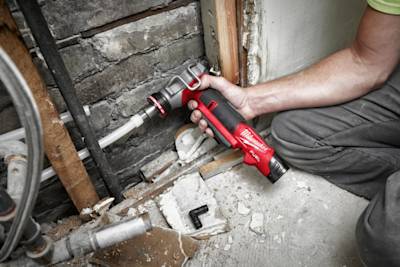With energy usage and efficiency being high priorities for today's consumers and businesses, the importance of the boiler coil system has never been more apparent. Most people have a basic idea about what a boiler does; it provides heat. But few understand the sheer importance and many functions of the boiler coil. Delving deep into this essential boiler part, you'll discover a world where energy efficiency meets the sophistication of design.
Absorbing the Heat: Boiler Coil's Primary Function
If you think about a boiler, its coil is its heart. This part is responsible for absorbing the heat produced when the fuel combusts — be it natural gas, oil, or another energy source. The absorbed heat is then used to heat your business establishment or your home, making the boiler coil a critical component of any heating system.
Design Specifications of Boiler Coils
Boiler coils are typically constructed with tubes made from steel or other high-performance metals. They undergo intense pressure testing to ensure they are reliable and capable of withstanding the extreme heat produced during fuel combustion.
- Design Material: Most boiler coils are made from steel or some durable metal. These materials are heat-resistant and extremely durable, making them perfect for surviving the high temperatures present in a boiler environment.
- Pressure Testing: The coils are also subjected to pressure testing, which ensures their reliability and capability to withstand extreme heat. A boiler coil must be capable of handling fluctuations in temperature without suffering structural damage.
Types of Boiler Coils
Next, let's familiarize ourselves with various kinds of boiler coils, each offering unique benefits under different heating situations.
Single Coil Boilers
Single coil boilers feature a lone, solitary coil through which the water circulates. These types of boilers usually come at a lower cost, making them a preferred choice for lower budget installations. Nonetheless, single coil boilers do have limitations when it comes to the hot water supply.
Double Coil Boilers
In double coil boilers, there are two coils, leading to faster heating times and continuous access to warm water. These coils heat the water simultaneously, meaning that supply of available hot water is rarely disrupted, no matter the demand. The only downside might be their higher price, but they offer added value in terms of efficiency and convenience.
Enhancing Boiler Coils Efficiency: Sought-After Factors
Maintaining and enhancing the efficiency of boiler coils is crucial for optimum heat generation. The following factors should be carefully considered:
- Proper insulation: To reduce heat loss, efficient insulation is critical. Good insulation can dramatically enhance boiler efficiency.
- Periodic maintenance: Timely maintenance is essential to keep boiler coils from developing leaks or other damage, thus extending their service life.
- Correct installation: Proper installation is important in ensuring optimal heat transfer and helping the system maintain even heat distribution.

Frequently Asked Questions about Boiler Coil
What types of boilers are suited for boiler coils?
Boiler coils can be used in different types of boilers including hot water boilers, steam boilers, thermic fluid heaters and the like. It must be noted, though, that the specific design and configuration of the boiler coil may differ depending on the type of boiler it is intended for.
What materials are boiler coils made of?
Most boiler coils are made from steel or copper due to their excellent heat conducting properties. However, the exact material may differ based on the design, manufacturer and application of the boiler. Some high-end or specialty boilers may also use advanced composite materials or special alloys for their boiler coils.
What is the lifespan of a boiler coil?
The lifespan of a boiler coil largely depends on its use, maintenance and the quality of water running through it. However, with regular maintenance and in ideal conditions, a boiler coil can typically last up to 10-15 years.
How can I prolong the lifespan of my boiler coil?
You can prolong the lifespan of your boiler coil by regularly checking its condition and maintaining it as recommended by the manufacturer. This usually involves occasional thermal cleaning or chemical cleaning to remove any scale or debris that may have accumulated on the coil. Additionally, using a water softener can reduce the formation of hard scale on the coil surface which often leads to reduced boiler efficiency and early coil failure.
How do I know when my boiler coil needs replacement?
There are several signs which may indicate that your boiler coil needs replacement. These include reduced boiler efficiency, noises coming from the boiler, leaks around the coil area, frequent need for reset, or an error code displayed on the boiler control panel.
What are the causes of boiler coil failure?
Boiler coil failure can occur due to a number of reasons. These might include excessive scale build-up, which can restrict water flow and cause the coil to overheat and fail, or corrosion due to poor quality water or a lack of maintenance. In some cases, mechanical damage from external sources or simply age may lead to boiler coil failure.
Can boiler coil leaks be repaired?
In some instances, specially if the leak is minor, boiler coil leaks can be repaired. However, this depends on the extent and location of the leak, as well as the overall condition of the coil. In many cases, particularly where the boiler coil is old or has extensive damage, replacement may be the more cost-effective option.

Pros of Boiler Coil
High Efficiency
Energy Conservation
One of the biggest advantages of boiler coils is their high efficiency. Since they conduct heat directly from a fuel source, such as natural Gas, into water, they can achieve efficiencies as high as 98 percent, while other types of boilers normally range between 70 to 80 percent. This significantly reduces the amount of fuel used, resulting in tangible savings in energy costs.
Hot Water Supply
Boiler coils are favored in many households and commercial establishments because they can provide an uninterrupted supply of hot water. Unlike traditional hot water heaters, which need time to heat the stored water, the hot water produced through boiler coils is instantaneous, ensuring that hot water is always available whenever it's needed.
Lower Installation Costs
In comparison to other heating systems, boiler coils are relatively less expensive to install. These units are compact, easy to handle and require less space, reducing installation time and costs. Also, boiler coils do not demand extensive alterations to the structure or layout of the premises, driving down associated costs.
Cons of Boiler Coil
Maintenance Requirement
Regular Inspections and Servicing
One of the potential disadvantages of having boiler coils is the requirement for regular inspections and maintenance. Like other heating systems, boiler coils tend to accumulate scale and sediment over time. If not regularly cleaned and serviced, these deposits can potentially reduce the efficiency and lifespan of the boiler coil. Thus, owners are advised to schedule regular servicing (at least once a year) by an experienced professional to keep the unit functioning optimally.
Possibility of Leakage
As boiler coils age, they could potentially develop leaks. These leaks, if undetected, could cause extensive water damage. Repairing or replacing a boiler coil could be an expensive proposition, and in some cases, it may be more cost-effective to replace the entire unit.
Versatility Limitation
Boiler coils are exclusively designed for heating water. If you require a heating system that can also provide space heating, a boiler coil might not be the best option. You may prefer a traditional boiler or a heat pump that can be incorporated into central heating systems to heat rooms as well.
Operational Noise
Boiler coils, particularly those that are outdated or ill-maintained, can generate substantial operational noise that can be disturbing. Unlike radiant floor heating or wall-mounted radiators which are virtually silent, a boiler coil system can potentially cause noise pollution within your premises.
Dependence on Fuel Availability
While the efficiency of boiler coils is a notable advantage, it also comes with a dependence on the availability of the fuel source. If for instance natural gas supplies were to be interrupted for any reason, you'd be left without hot water. This contrasts with systems that use electricity as a power source, since power outages are typically less frequent than interruptions in gas supply.

Myths and Misconceptions About Boiler Coils
When it comes to boiler coils, it is evident that several myths and misconceptions widely circulate. This is unfortunate, as these false notions can lead to a lot of confusion for homeowners and users of the heating systems. Let’s address some of these misconceptions and provide the actual facts.
Myth 1: Boiler Coils Don't Require Regular Maintenance
Reality: Regular Maintenance is Necessary
One of the most common misconceptions is that boiler coils do not require maintenance. This belief can be dangerous because neglecting the regular inspection and maintenance of boiler coils can lead to decreased efficiency, and in extreme cases, a complete breakdown of the heating system. Like any other mechanical equipment, boiler coils also need annual check-ups and cleaning to ensure optimal performance.
Myth 2: Any Leakage is Unimportant
Reality: Leaks can Harm Your System and Increase Costs
A common myth regarding boiler coils is that minor leaks aren’t a big issue. However, ignoring such issues over time can lead to bigger problems. Leaks allow water and heat to escape, causing the system to work harder and decrease its overall efficiency. It may also cause significant water damage to the surrounding area if the leak is left unrepaired.
Myth 3: Size Does Not Matter
Reality: Choosing the Correct Size is Crucial
A misconception is that the size of the boiler coil does not matter, and any size will work just as good. This is not true. The size of the coil must be proportional to the size of the boiler to ensure that the system can heat your home efficiently. An undersized or oversized coil could potentially deliver an inferior performance compared to a correctly sized coil.
Myth 4: All Coils are the Same
Reality: Material and Design Matter
Many believe the idea that all boiler coils are created equal is true as well. This is not the case. Coils can come in various designs, and the materials used to construct them can greatly influence their effectiveness. For instance, copper coils are preferred as they have a high rate of heat transfer, but stainless steel coils are more resistant to corrosion.
Myth 5: Boiler Coil Replacement is Rare
Reality: Replacement Needs Depend on Various Factors
Contrary to this belief, the need for coil replacement depends on many factors such as the hardness of the water, the quality of the coil, and how well you maintain your system. If you do not maintain your system, or if your water contains many minerals, deposits may build up on your coil, decreasing its efficiency and eventually necessitating replacement.
Myth 6: Energy Efficiency Isn't Affected by Coil Condition
Reality: Coil Condition Directly Affects Efficiency
The condition of the boiler coil directly impacts the energy efficiency of the boiler system. A poorly maintained, dirty, or damaged coil can restrict heat transfer, making your boiler work harder to maintain the same temperature. This results in increased energy usage and higher utility bills.
Boiler coils play a vital role in the overall functioning of the heating system. As such, it's important that homeowners understand how to take care of them, the importance of regular maintenance, and the potential costs of allowing misconceptions to direct their actions. Shedding light on these myths and misconceptions about boiler coils helps ensure systems function efficiently and at their best capability.
Summary
Boiler coils play a crucial role in many heating systems. Their main function is to generate steam by heating water, which in turn powers various processes. In large scale industrial applications, they can help with everything from power generation to facilitating chemical reactions. So, these coils really are the heart of any boiler system, making sure everything runs smoothly and efficiently.
Boiler coils aren't just about functionality, they're also about efficiency. These coils are designed to maximize the surface area in contact with the water, allowing for quicker and more effective heating. This not only helps your boiler system work better, but it can also save on energy costs. Less energy needed to heat the water means less energy wasted, which is what we all want, right?
So, whether you're installing a new boiler system or keeping an old one in good health, don't overlook the importance of a good boiler coil. Its role may seem small, but its impact is substantial. Remember, it's not just about getting the job done, but also about doing it as efficiently and effectively as possible. And that's where the boiler coil comes into play.
About KYPD Plumbing
KYPD Plumbing has been the go-to resource for premier plumbing services in Lexington, KY for years now. We're a locally-owned and operated business, which means we're not just serving customers - we're serving our neighbors and friends. We take pride in every job we undertake, no matter how big or small. Our team of professional plumbers is passionate about providing reliable and efficient solutions to meet all your plumbing needs. We believe in quality workmanship and customer satisfaction above all and ensure that every plumbing project we handle is completed to the highest standards. Whether you need help with the basic plumbing maintenance or face the most complex plumbing woes, KYPD plumbing is here to lend a hand!
Tags: boiler, coil, heating system,













